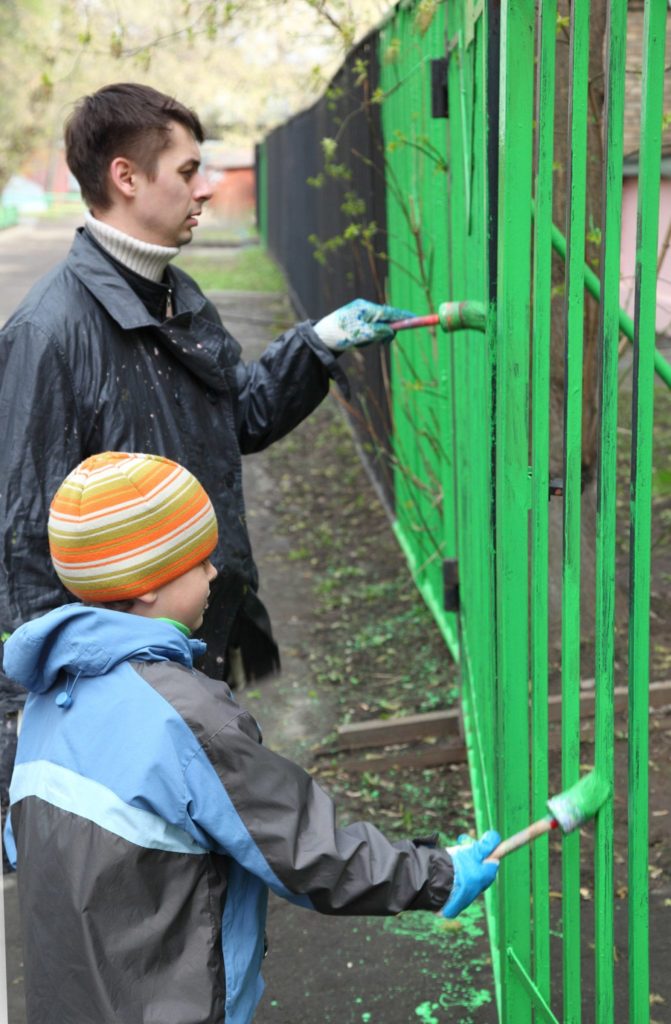Listen to this Chapter
Resource Resilience Boosters
Booster 1: Tap into the Power of People
A Skill for the Entire Family

This booster comes with a warning. There are many good people who are more than happy to share skills, knowledge, expertise, and maybe even physical resources to help others. However, when accessing other people to increase our resilience, it’s important to recognize that no one likes to be manipulated or feel used. This booster is not about how to win friends so you can get something out of them. Sincerely caring about the people who can act as valuable resources to you is essential. Gratitude and sincerity will create, maintain, and even enhance your relationships with those who help you.
In a family, parents have a responsibility to be the most important and relied-upon resources for their children. They should be among the first people their children look to for support, encouragement, and the skills necessary to navigate challenges. But there will be times when your skillset, schedule, or proximity will make it difficult for you to help your child. That’s why the skill of tapping into the power of people is important not just for parents, but for the entire family.
Be willing to admit when you need the assistance of others, and then have the courage to speak up and ask for what you need.
Michelle’s Dilemma
Michelle is a single mom who works long hours, but who also has a great relationship with her 12th-grade son, Jeff. Jeff is a star player on the varsity basketball team and is getting decent grades.

Parent-teacher conference is coming up, and Jeff emphasizes to her the importance of sitting down with his basketball coach while she’s at the conference, explaining that he’s got a surprise for her.
Michelle has a hunch that Jeff got the athletic scholarship to the local state college that he’s been hoping for, and the idea of hearing the official news from Jeff’s coach with Jeff by her side sounds perfect.
The problem: Parent-teacher conference is at 5:00. Michelle doesn’t get off work until 6, and it takes 30 minutes to get home. Add to that, the conference falls on a day that Michelle is supposed to train a new employee, so leaving work early would be difficult.
How could Michelle tap into the power of people in this scenario? She could:
- Contact Jeff’s coach, explain the situation, and arrange for a separate meeting with him and Jeff.
- Call Jeff’s coach to confirm the news about Jeff’s scholarship, then recruit the help of friends and family to throw a surprise party in his honor.
- Explain the situation to her boss and see if she can work out another training schedule for the new employee, including working a day and time that she wouldn’t normally work.
Jeff’s dilemma

When Michelle sits down with Jeff and explains her conflict with work and his parent-teacher conference, he is understandably disappointed. The truth is, he is getting a full-ride scholarship to the local state college, making him the first person in his family to continue his education.
He’s been excited to have his coach, a major positive influence in his life, give the news to his mom, one of his heroes. He’d even been planning a small speech of gratitude to let Michelle know how much he appreciates all the work she’s put in to provide a better life for him.
How could Jeff use the booster of tapping into the power of people in this situation? He could:
- Ask Coach to write a letter to his mom giving her the news, then deliver it to her personally.
- Ask a friend with a car to take him to his mom’s work on the night of the parent-teacher conference, where he can give her the news in front of her work friends and honor her publicly.
- Schedule a separate meeting with Coach on a night he knows Michelle will be free.
All of the possible solutions for Michelle and Jeff require the help and support of other people in their lives. The key is that both Michelle and Jeff have spent time and effort cultivating those relationships and know that they can reach out to them as resources in times of need.
Most importantly, express gratitude to family members constantly.
Tips for Applying this Booster
Consider these points as you Tap Into the Power of People:
- Surround yourself with people who already possess the skills or character traits you’d like to develop.
- Try to create opportunities for your children to do the same, hopefully modeling this booster in your everyday life.
- Be willing to admit when you need the assistance of others and then have the courage to speak up and ask for what you need.
- Don’t isolate yourself. Seek out new friendships and be inquisitive – ask about the other person’s life and experiences.
- Be eager and willing to be a resource to others who could benefit from something you’re good at.
Discussing this Booster with Your Child
Ask your children what their goals are – where do they see themselves in one year? In five years? In ten years? For younger children, simply discuss what they would like to be when they grow up.
Now ask your children about all the different people that might help them meet these milestones. If they have a sports goal, for example, talk about how coaches, athletes in the neighborhood, and others might help them. If they have a career goal, talk about how they could talk to someone who works in that career, as well as a school counselor, to give them advice on what to do to.
Explain that when you surround yourself with people who are strong in the areas you want to be strong in, that’s called tapping into the power of people.
Challenge your older children to write a letter or email to someone who has the skills they would like to obtain. Have younger children draw a picture of what they want to be when they grow up to remind them that it’s worth it to ask for help when you want to obtain a goal.
If possible, go with your child to meet a potential mentor, school counselor, or someone who shares their passion or interest.
Reflection
Have you ever needed someone’s assistance or expertise, yet hesitated to ask for their help or advice? Identify a dilemma you’re currently facing and a person you could approach who might steer you in the direction of resolving your concern – and don’t forget the Internet can be a resource too. If you’re unsure about whom to contact, reach out to family, friends, neighbors, and even co-workers. There’s usually someone who knows someone else with the knowledge and skills to get you started on your journey.
Booster 2: Get Some Production Therapy!
You are the opposite of stagnant, staying highly engaged in activities that aren’t hurtful to yourself or others, working hard, or producing something that gives you a sense of accomplishment.
The Therapy of Meaningful Work
Did you know that the average American spends a MINIMUM of 8.5 hours a day in front of a screen – or multiple screens at once? For kids, it’s only slightly better – about 6.5 hours per day, according to one study. With the advent of Netflix, Snapchat, Twitter, YouTube, and countless apps designed with children and teenagers in mind, few would question that our country has a device problem.
For kids, brain development suffers as a result. For adults, our fixation to our screens puts us at risk for something almost worse – losing our attunement with our children.

Look around you at this moment…
- Is there something unfinished or out of place?
- A half-completed bookshelf?
- A sink full of dishes?
- Holiday decorations that haven’t quite made it back into their boxes?
We all have messy lives – but think about how good it would feel if this unfinished task was completed. Now go complete it, just the one thing. Go ahead! This guide will still be here when you get back.
How did that feel?
We call this booster production therapy because there is something therapeutic and healthy about meaningful work that creates a positive, desirable result. There’s a strong relationship between production therapy and producing resilience in a family. Producing something of value, whether it’s tidying up a messy room, assisting an elderly neighbor, or tackling a task you’ve been putting off at work, is therapeutic as you look back on your accomplishment with a sense of satisfaction.
Consider these words from a judge who frequently dealt with youth offenders, quoted in The Resilience Breakthrough:
Hang the storm windows, paint the woodwork… Visit the sick, assist the poor, study your lessons. And then when you are through… read a book. The world does not owe you a living… you owe the world something. You owe it your time and your energy and your talents.”
It’s not easy creating a productive family. Left to themselves, most kids (and sometimes adults) prefer screen time overwork. Sometimes motivation can be hard to find, but the more we just get up and do it, the good feelings that result will make it easier to be productive again and again, which is why it’s key that we let our kids experience those feelings of accomplishment. Healing takes place as we teach our children what it takes to roll up their sleeves and dive in to become producers, rather than being merely observers and consumers.
For kids, brain development suffers as a result. For adults, our fixation to our screens puts us at risk for something almost worse – losing our attunement with our children.
Healing takes place as we teach our children what it takes to roll up their sleeves and dive in to become producers, rather than being merely observers and consumers.
Creating a Productive Family Culture
So how do you as the leader of your family encourage others to adopt the attitude of production therapy? Here are some thoughts:
Be an example of production therapy. Be seen by your children (and partner, if applicable) as someone who values getting in motion and staying in motion until a task is complete.
Look around you and look around your house (and yard if you have one). What would make your surroundings more pleasant, more comfortable, and more livable? Suppose you’ve allowed a particular room or space to become cluttered, unsightly and possibly even unlivable. During a resilience meeting, give a brief explanation of production therapy, then involve each family member in tackling this messy space.
Be patient! Children will often fail to see the purpose of engaging in a task such as the one mentioned above. Be highly encouraging, praising small improvements rather than waiting until the entire task is complete before offering your thanks.

Discussing this Booster with Your Children
- Ask your children about a time in their life when they accomplished something they were proud of. How did it feel? Give your own example.
- Ask your children about the work they had to put in to accomplish that thing. Was it hard? How much time did it take?
- Explain that the good feeling you get when you complete something that takes time and work is called production therapy.
- Invite your children to think of something they would like to accomplish and work hard to complete it so they can have those good feelings again.
Reflection
Is there anything in your family’s life that could benefit from a dose of production therapy? It doesn’t have to be something physical, like a yard or an unkempt room. It could be that family members have simply become couch potatoes as they fixate on the television, computer or smartphones while a more worthwhile and satisfying activity is being overlooked. Find a project and then, with your family’s help, achieve a small win. Express appreciation to family members for their roles in this accomplishment. How did it go?
Far and away the best prize life has to offer is the chance to work hard at work worth doing.”
Theodore Roosevelt, Jr.
Christian Moore – The Resilience Breakthrough, page 189
Additional Resources
Activities
